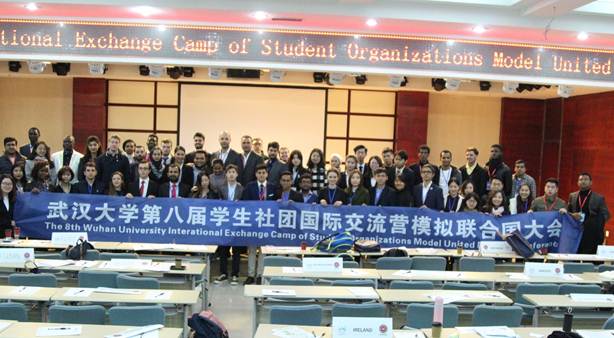
It is 9:17 and the light murmuring that usually accompanies a Model United Nations conference has begun. The delegates are each preparing their speeches and positions as the moderators at the dais take their seat.
This is just one of the many activities taking place at Wuhan University’s 8th International Exchange Camp. The organizers of the camp have set aside Sunday, the 26th of November, as the day to discuss the influence of youth regarding the Paris Agreement.
According to the brochure booklet given at the welcome table, Model United Nations (MUN for short) is one of the most popular student activities in the world. Usually, conferences are about three days, but this one has been abbreviated to one day, split into a morning and afternoon session, each lasting about two and a half hours.
Today, the country representation is a little slim, consisting of about 30 nations. Each of the nations are given the opportunity to speak on the floor for about one or two minutes, describing their official position on the issue. Then, the dais (the moderators of the event), allow the delegations to motion for either an unmoderated caucus or a moderated caucus. The former allows members to freely converse with one another and the latter allows delegates to speak on specific subtopics for a predetermined amount of time.
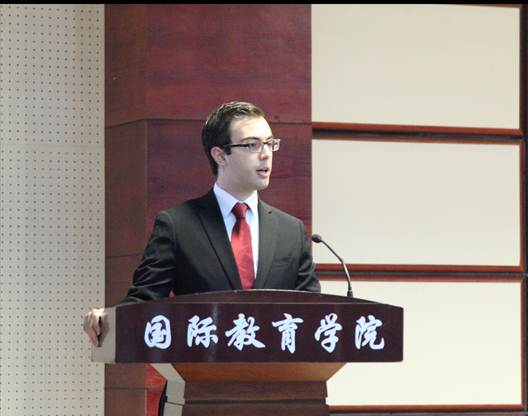
It was clear from the beginning that the United States of America would be the punching bag of the event, the country announcing their desire to withdraw from the agreement this past year. Brazil’s representation was the first to point out the lack of U.S. participation and was soon followed by a few others. Yet, other nations were a little less accusatory with their remarks, simply stating the importance of the climate change issue. Ireland even remarked that if the world does not do something now, we will all eventually become “barbeque”, either by global warming or through nuclear warfare.
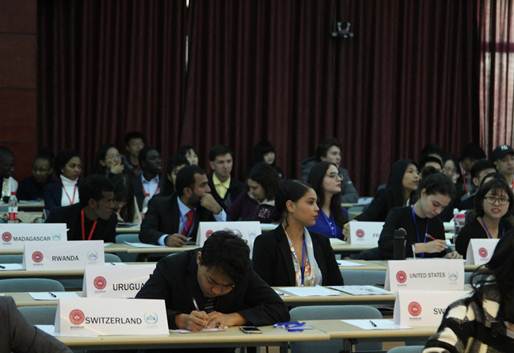
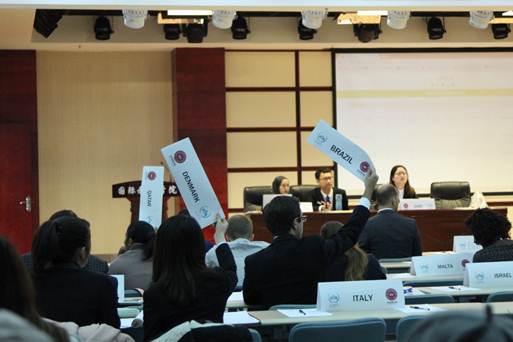
While some delegates were critical of the developed nation’s lethargic movement regarding international climate collaborations, the United States took some of the more poignant blows. Yet, the delegate’s response to these remarks were well-poised, often stating that while the United States does still plan to withdraw from the Paris Agreement, it does not intend to stop pursuing its own climate and coalition goals.
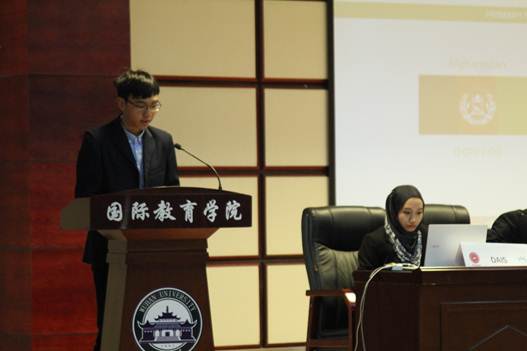
Generally, the conference was a series of speeches, unmoderated caucuses, and tea breaks until the time came to vote on the working papers. Working papers are essentially draft resolutions proposed by a coalition of delegations. Usually, there are some initial signatories as well. This vote was on two working papers, one sponsored by France, Germany, and Brazil and another sponsored by Australia and China. The co-sponsoring delegations each approached the podium to present their paper as well as defend it against criticism and questioning.
Unfortunately, both were not passed. This result prompted one delegation, Madagascar, to decry the entire event, questioning the effectiveness and worth of the process. In response, the dais reminded everyone that such an outcome is not uncommon. It is important to remember that the institution of the United Nations is far from a perfect one, but it is also the only official organization where nations attempt to cooperate on important global issues. To have over 100 nations fully agree with one another is a difficult feat, but the United Nation’s existence shows that there is at least some interest in trying to live in harmony with one another. If anything highlights that well, it would be Model United Nations conferences such as this one.
Photo by Taha, edited by Hu Sijia